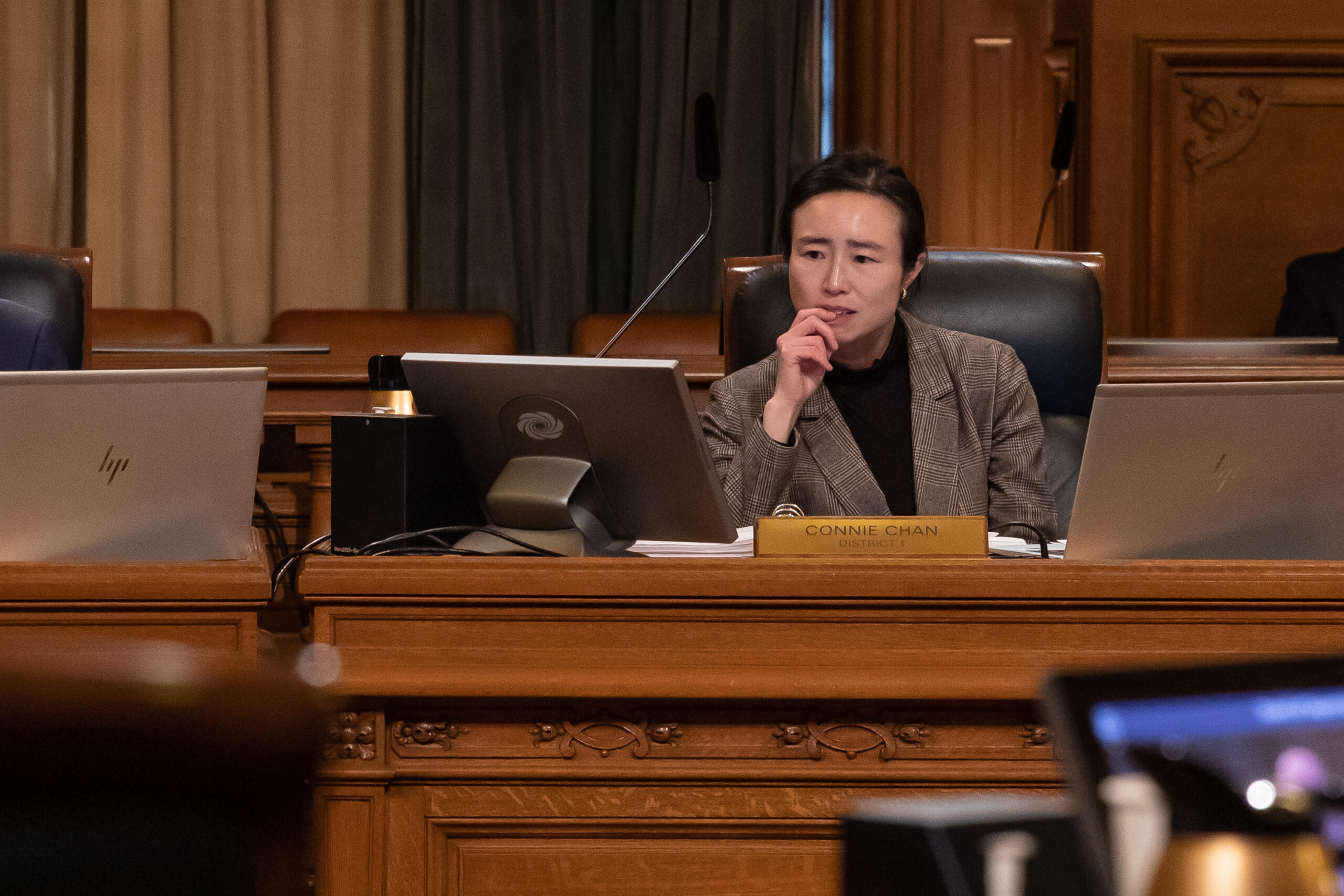A San Francisco Board of Supervisors committee forwarded Mayor London Breed’s controversial police overtime budget proposal to the full board Wednesday evening after a seven-hour meeting.
At issue was not only the San Francisco Police Department’s yearslong dilemma of increasing reliance on overtime in the face of a growing officer shortage, but also how the overtime has been distributed among the department’s stations.
“There seems to have been more investments from the mayor directing her police department to protect designer bags more than the Asian elders, who have been under attack for the last two years,” said District 1 Supervisor Connie Chan, chair of the Budget and Appropriations Committee.
The midyear funding boost heads to the full board for final votes without recommendation, but with amendments.
Those amendments reduced the total appropriation from $27 million to just over $25 million through concessions offered by the Mayor’s Office, and added a requirement that SFPD submit to the board biweekly reports on staffing and overtime spent by neighborhood.
The amendments were demanded as committee members zeroed in on data in a presentation made by Chief Bill Scott and other brass that showed Central Station—which is responsible for the northeast part of the city including Downtown—getting the largest amount of overtime hours, at the perceived expense of other police districts where the number of property crimes was also growing.
District 9 Supervisor Hillary Ronen, who represents the Mission, excoriated Scott over current safety issues plaguing the neighborhood and her struggles to get better police service to combat property crimes and illegal street vending.
“What I want to hear from you and the Mayor’s Office is why have we spent so much money guarding shoppers when we’ve been begging for officers in our neighborhoods where shootings, assaults, overdoses, drug deaths [and] thefts from local small businesses have been unbelievably off the hook,” Ronen said to Assistant Chief David Lazar. “You could have taken [officer hours] from Central [Station], where you were guarding Versace.”
In agreeing to support the bill as amended, Ronen warned that she would immediately introduce legislation to undo it if police failed to comply with those amendments.
The Downtown-versus-the-neighborhoods narrative was also explored by other committee members.
District 10 Supervisor Shamann Walton said he had dispatched one of his legislative aides to Louis Vuitton to check on clothing prices. The staffer found shirts selling for $10,000.
“There is some extreme intentionality to protect certain areas of San Francisco, to provide a certain type of policing, at the neglect of other areas of this city,” Walton said.
Scott and Lazar explained that Central Station was where a number of police deployment initiatives were based, including Safe Shopper, which is aimed at preventing retail thefts and reassuring shoppers. It’s also headquarters for citywide events, tourism and officers on overtime for backfilling patrol cars.
Board President and District 3 Supervisor Aaron Peskin pointed out the imbalance in assigned overtime but said he saw it as a “structural budgetary problem” in the department due to a failure to meet the challenges of personnel attrition, recruiting, the reduction in overall police service calls due to alternative response services and “civilianization” of support positions among other issues.
Peskin called for a deeper examination of those issues between now and when the budget process begins in earnest this fall.
District 11 Supervisor Ahsha Safaí, who said he would ask for another $3 million in overtime funding for neighborhood police stations, tried to reallocate the $2 million in negotiated savings to that end, but failed to get a second.
Walton tried to slash the proposal’s dollar amount and dedicate the removed funds to immediately setting up a city department of reparations. He also failed to get a second.
District 8 Supervisor Rafael Mandelman said the department was forced to do more with less in a harder enforcement environment, with new state laws that make it more difficult to combat certain crimes such as illegal vending.
“You’re getting caught in the crossfire of a policy debate here between two branches of city government,” Mandelman told Scott. “I want more presence in general, but I also believe San Francisco has earned a national and international reputation that is detrimental to our having visitors coming into our downtown, retailers closing their doors and leaving, and that is also detrimental to our budget.”
